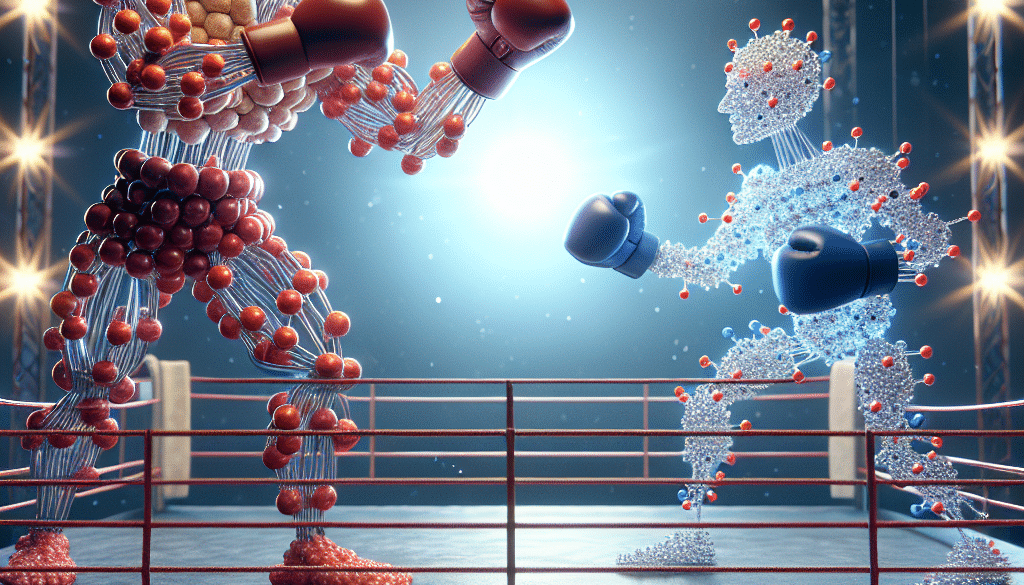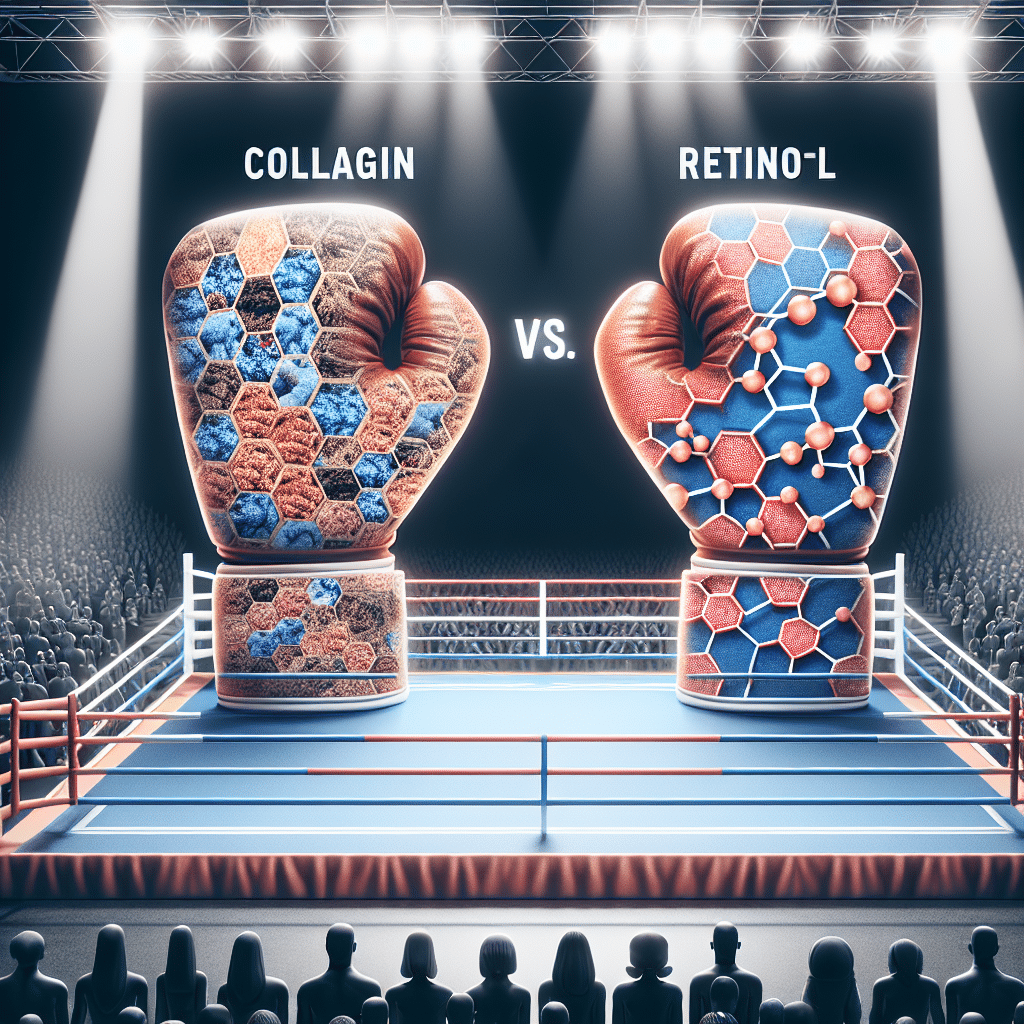Collagen vs Retinol: Which is the Anti-Aging Champion?
-
Table of Contents
- Collagen vs Retinol: The Ultimate Anti-Aging Showdown
- Understanding Collagen: The Skin’s Structural Protein
- Retinol: The Vitamin A Derivative
- Comparing Collagen and Retinol
- Mode of Action
- Effectiveness
- Side Effects
- Usage
- Case Studies and Research
- Which Should You Choose?
- Combining Collagen and Retinol
- Conclusion: No Clear Winner, But a Powerful Duo
- Discover ETChem’s Premium Protein Products
Collagen vs Retinol: The Ultimate Anti-Aging Showdown
When it comes to anti-aging skincare, two ingredients have dominated the conversation: collagen and retinol. Both are touted for their ability to diminish the signs of aging, but they work in very different ways. In the quest for youthful skin, consumers are often left wondering which of these powerhouse ingredients is the true champion of anti-aging. This article delves into the science behind collagen and retinol, comparing their benefits, uses, and effectiveness to help you make an informed decision.
Understanding Collagen: The Skin’s Structural Protein
Collagen is the most abundant protein in the human body and a critical component of the skin’s structure. It provides firmness, elasticity, and strength to our skin. As we age, our bodies produce less collagen, leading to wrinkles, sagging, and a loss of firmness.
- Types of Collagen: There are several types of collagen, but types I, II, and III are the most common in the skin.
- Collagen in Skincare: Topical collagen creams and supplements aim to replenish the skin’s natural collagen levels.
- Benefits: Collagen can improve skin hydration, elasticity, and overall appearance.
Retinol: The Vitamin A Derivative
Retinol is a derivative of vitamin A and a powerful anti-aging ingredient. It’s known for its ability to accelerate cell turnover, stimulate collagen production, and unclog pores.
- Retinol’s Mechanism of Action: It penetrates deep into the skin to speed up cell renewal and repair.
- Retinol in Skincare: Available in various strengths, retinol can be found in over-the-counter products and prescription medications.
- Benefits: Retinol can reduce the appearance of fine lines, wrinkles, and hyperpigmentation.
Comparing Collagen and Retinol
While both collagen and retinol are celebrated for their anti-aging properties, they serve different functions in skincare.
Mode of Action
Collagen acts primarily as a hydrating agent and structural support, while retinol works by promoting skin cell turnover and boosting collagen synthesis.
Effectiveness
Retinol has been extensively studied and is considered one of the most effective anti-aging ingredients. Collagen’s topical application is still debated, as its molecules are too large to penetrate the skin deeply.
Side Effects
Retinol can cause irritation, redness, and peeling, especially when first introduced to a skincare routine. Collagen is generally well-tolerated, with minimal side effects.
Usage
Retinol is best used at night due to its sensitivity to sunlight, while collagen can be used at any time of day.
Case Studies and Research
Several studies have highlighted the benefits of both collagen and retinol. For instance, a study published in the Journal of Cosmetic Dermatology found that a topical retinol application significantly improved fine wrinkles. On the other hand, research in the Journal of Medical Nutrition and Nutraceuticals reported that collagen supplementation showed improvements in skin elasticity and hydration.
Which Should You Choose?
The decision between collagen and retinol depends on your specific skin concerns and goals. If you’re looking for hydration and minimal irritation, collagen might be your go-to. For more pronounced anti-aging effects like reducing wrinkles and improving texture, retinol could be the better choice.
Combining Collagen and Retinol
For those looking to maximize anti-aging benefits, using both collagen and retinol may be the answer. This combination can provide both immediate and long-term improvements in skin health and appearance.
Conclusion: No Clear Winner, But a Powerful Duo
Ultimately, there is no definitive “champion” in the anti-aging battle between collagen and retinol. Both have their unique strengths and can be valuable additions to a skincare routine. By understanding their differences and benefits, you can tailor your approach to anti-aging and achieve the youthful, radiant skin you desire.
Discover ETChem’s Premium Protein Products
If you’re interested in incorporating high-quality collagen into your routine, consider ETChem’s protein products. Their extensive range of collagens, including marine, fish, bovine, and chicken, are perfect for various applications in the nutraceutical, pharmaceutical, and cosmeceutical industries.
About ETChem:
ETChem, a reputable Chinese Collagen factory manufacturer and supplier, is renowned for producing, stocking, exporting, and delivering the highest quality collagens. They include marine collagen, fish collagen, bovine collagen, chicken collagen, type I collagen, type II collagen and type III collagen etc. Their offerings, characterized by a neutral taste, instant solubility attributes, cater to a diverse range of industries. They serve nutraceutical, pharmaceutical, cosmeceutical, veterinary, as well as food and beverage finished product distributors, traders, and manufacturers across Europe, USA, Canada, Australia, Thailand, Japan, Korea, Brazil, and Chile, among others.
ETChem specialization includes exporting and delivering tailor-made collagen powder and finished collagen nutritional supplements. Their extensive product range covers sectors like Food and Beverage, Sports Nutrition, Weight Management, Dietary Supplements, Health and Wellness Products, ensuring comprehensive solutions to meet all your protein needs.
As a trusted company by leading global food and beverage brands and Fortune 500 companies, ETChem reinforces China’s reputation in the global arena. For more information or to sample their products, please contact them and email karen(at)et-chem.com today.


